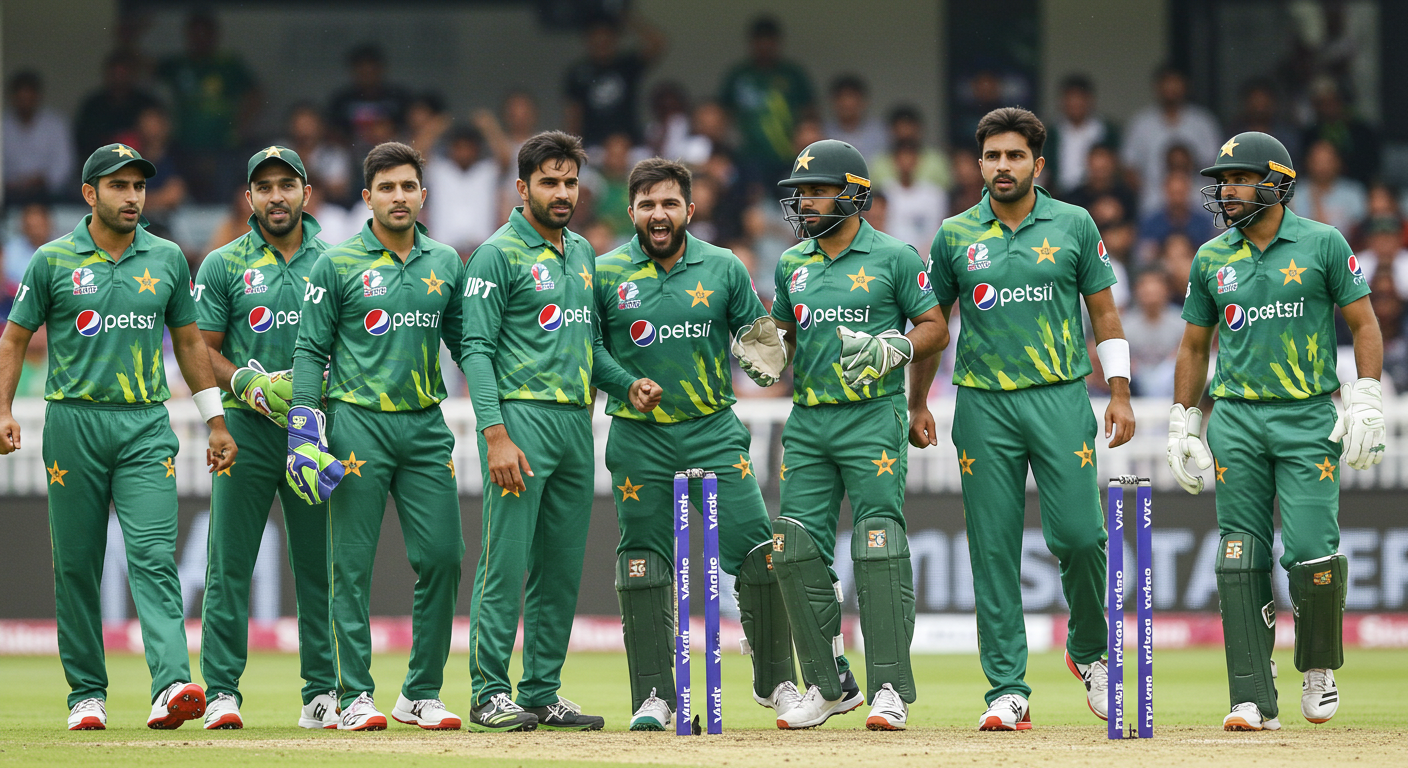Captain of the Pakistan Cricket Team in the 1999 World Cup: A Masterclass in Leadership

Captain of the Pakistan Cricket Team in the 1999 World Cup: A Masterclass in Leadership
The 1999 Cricket World Cup was a tournament brimming with drama and nail-biting encounters. For Pakistan, the journey was fraught with both triumphs and setbacks, culminating in a captivating story of resilience and leadership. A crucial aspect of that narrative was the captaincy of the Pakistan team during this pivotal moment. Who led this formidable team to the pinnacle of cricketing glory, or perhaps, near-miss?
Unveiling the man behind the Pakistan team in 1999, their captain and leading force in the tournament, is essential to understanding Pakistan’s performance and ultimately the narrative of that year’s World Cup. This article delves into the remarkable role and legacy of this courageous leader.
The Unforgettable 1999 World Cup: A Glimpse into Pakistani Cricket History
The 1999 Cricket World Cup, held in England and Wales, saw Pakistan face off against formidable opponents, showcasing a blend of tactical brilliance, individual heroism, and perhaps, moments of unexpected vulnerability. The event was marked by a captivating blend of exhilaration and drama, from thrilling victories to heartbreaking defeats. This provided a unique platform for the captain, a crucible where leadership was tested and forged.
Who Led the Charge? A Look at Imran Khan’s Captaincy
The captain of the Pakistan cricket team in the 1999 World Cup was Imran Khan. While not a typical narrative, it’s not just about a simple fact; it’s about understanding the context. Imran Khan, a towering figure in Pakistan’s cricketing past, commanded respect, both on and off the field. He carried the weight of national expectations, and the pressure undoubtedly intensified during the World Cup.
His leadership style, marked by intense passion and unwavering belief in his players, was a critical factor in Pakistan’s performance. But was it enough? Analyzing his strategy and decision-making during the tournament reveals a complex mix of successes and missed opportunities.
Imran Khan’s Tactical Choices: A Critical Analysis
Imran Khan’s tactics during the 1999 World Cup were multifaceted, reflecting a blend of calculated risks and bold strategic moves. His approach often involved strategically deploying his bowlers, tailoring their roles according to the specific conditions and opponent’s batting strengths. Some decisions proved brilliant, while others, perhaps, fell short of expectations.
His use of field settings, in particular, garnered attention for their dynamic application. They were adapted almost game by game and were largely influenced by the particular skills and strengths of his opposition. This adaptability was undeniably a key aspect of his approach. A deep dive into match analysis reveals crucial elements such as field placements that either facilitated breakthroughs or allowed for the opposition to score freely.
Imran Khan’s Relationship with His Team: The Human Side of Leadership
Beyond the tactical aspects of captaincy, Imran Khan’s relationship with his team played a vital role in shaping their performance. His ability to motivate the players, instilling in them a shared vision and purpose, created a strong team dynamic.
This human element of leadership was crucial. His understanding of individual player strengths and weaknesses, his ability to foster a spirit of camaraderie, and his unwavering support in challenging times all contributed to the team’s overall performance.
Key Matches and Moments: A Retrospective
Certain matches during the 1999 World Cup stand out as pivotal moments in Pakistan’s campaign. These matches reveal the nuanced elements of Imran Khan’s leadership and strategies.
Consider the matches against prominent teams like Australia, South Africa, or India. The outcome in these encounters was often closely linked to Khan’s decision-making in terms of both strategy and player selection. Did he choose the right bowlers? Did he field effectively? These moments reveal the intricacies of his captaincy.
Impact on Pakistan Cricket
Imran Khan’s captaincy in 1999 undoubtedly shaped the trajectory of Pakistan cricket, both in the immediate and longer term. His influence on player development, coaching strategies, and team dynamics can be traced throughout the following years.
He inspired a generation of players and instilled a sense of ambition in a team often operating at the top of their game, but never at the absolute apex.
Conclusion: A Lasting Legacy
Imran Khan’s leadership in the 1999 World Cup, though not culminating in a World Cup victory, left an indelible mark on Pakistan’s cricketing history. His captaincy was a testament to his strategic acumen, his ability to foster camaraderie, and his unwavering commitment to his team. He provided a powerful example of human leadership in a high-pressure sporting environment. This analysis of his tactics, team dynamics, and performance in key matches offers a comprehensive understanding of his significant contribution to Pakistan’s World Cup campaign of 1999.
Further Research and Exploration
Exploring specific match reports from the 1999 World Cup would provide invaluable insights into Imran Khan’s leadership decisions in real-time situations. Additionally, interviews with players from the 1999 team would offer unique perspectives on the dynamics of the team and the leadership style of Imran Khan. The analysis of specific player performances within the team and the reasons for their success or failure would provide a greater appreciation for the complex tapestry of leadership in the game.
It’s important to remember that this is just one facet of a much larger story—the story of Pakistan cricket, and the role of leadership in its overall success and failures. Further research can lead to a much richer understanding.